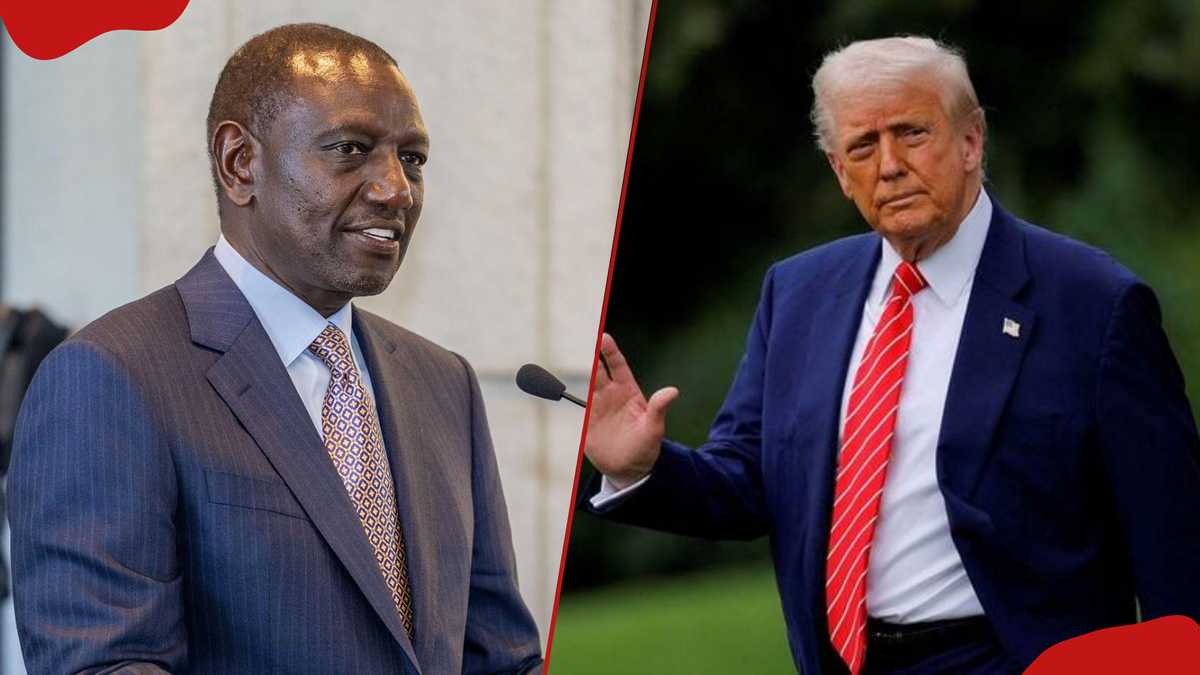
Kenya's Pursuit of a US Trade Deal and AGOA Extension: Opportunities and Challenges
Kenya is actively seeking a bilateral trade agreement with the United States and a five-year extension of the African Growth and Opportunity Act (AGOA) to protect its crucial export markets. This move is driven by the recognition of AGOA's significant role in supporting key industries that employ hundreds of thousands of Kenyans and generate vital foreign exchange. However, experts caution that over-reliance on AGOA could expose Kenya to economic vulnerabilities, emphasizing the need for strategic improvements in infrastructure, governance, and value-addition strategies.
Strategic Steps for Kenya to Maximize AGOA Benefits
To fully leverage any trade agreement, Kenya must implement several key strategies:
-
Unified Export Strategy: Kenya requires a cohesive export strategy that integrates diplomatic efforts with industrial policy and domestic regulatory reforms. This involves streamlining customs procedures, investing in quality control laboratories and sanitary and phytosanitary systems for agricultural exports, and ensuring manufacturers are well-informed about product origin regulations. Robust domestic regulations are crucial, as weaknesses in this area can undermine the benefits of preferential trade agreements.
-
Infrastructure and Logistics Enhancement: Reliable infrastructure and logistics are paramount. Efficient ports, roads, and power infrastructure are essential for the seamless transportation of goods. Addressing inland logistics challenges is also crucial to ensure that time-sensitive exports reach US markets in optimal condition.
-
Legal and Institutional Reforms: Reducing political risk is vital for attracting long-term investment. Increased transparency in procurement, strengthened anti-corruption measures, and enhanced worker protections can significantly lower this risk. Establishing credibility through these reforms can be as important as tariff preferences in attracting investments in sectors like textiles, processed foods, and agri-processing.
Potential Risks of AGOA Dependence
While AGOA offers significant advantages, there are inherent risks associated with relying heavily on preferential access.
-
Complacency and Lack of Diversification: Over-reliance on tariff-free access can lead to complacency, discouraging exporters from investing in productivity, innovation, and market diversification. This can make them vulnerable to shifts in US policy or geopolitical tensions. The recent imposition of a 10% tariff on certain Kenyan goods by the US underscores this risk, highlighting that trade preferences do not guarantee protection from other trade measures.
-
Uneven Distribution of Benefits: The benefits of preferential access often concentrate in specific regions or among certain companies, leaving smallholders and marginalized areas behind. While sectors like flower and avocado farms have well-established supply chains to meet US demand, smallholder tea and coffee producers may struggle to meet stringent certification and packaging standards without substantial support.
To address this, policies should aim to create inclusive value chains that enable small and medium-sized enterprises to participate as contractors, outgrowers, and service providers. This requires targeted funding, effective networking mechanisms, and technological assistance.
Key Industries and Potential Gains
Different sectors within Kenya stand to gain differently from continued access to the US market:
-
Textiles and Clothing: This sector is a significant employer. Preferential access is vital for maintaining competitiveness against lower-cost Asian competitors. Success in this sector hinges on addressing issues of scale, vertical integration, and compliance with US rules of origin. This includes initiatives such as local yarn and fabric production or negotiating flexible rules that acknowledge regional value chains.
-
Agriculture: Horticultural exports like cut flowers and avocados, already popular in the US market, would benefit from sustained access. However, these industries are susceptible to seasonal variations and climate change impacts. Traditional exports like tea and coffee face increasing competition and need to transition from low-cost commodities to branded, value-added products to enhance profitability. Fisheries and emerging mining exports also hold potential but require stringent regulations to ensure sustainability and responsible revenue management.
Lessons from Other AGOA Beneficiaries
The experiences of other AGOA beneficiaries offer valuable insights. Some countries, like Lesotho, have successfully leveraged AGOA to attract investment and boost exports. South Africa and Mauritius have also utilized duty-free access to diversify their export markets. However, many AGOA beneficiaries have seen limited progress due to unresolved domestic challenges such as inadequate energy supply, skills shortages, and outdated business regulations.
This underscores the critical point that trade preferences alone do not guarantee competitiveness. They must be coupled with domestic reforms and a strategic plan for moving up the value chain.
The Imperative of Diplomacy
Diplomacy plays a crucial role in shaping Washington's stance on AGOA. Kenyan leaders must articulate a compelling case that increased trade with Kenya aligns with US interests, such as fostering security partnerships and creating investment opportunities for American companies.
Kenya should also use this period to negotiate protections for key sectors against sudden policy changes and seek technology transfer and investment commitments to enhance domestic capacity. The goal should be to move beyond simply exporting raw materials to exporting value-added products.
Kenya's pursuit of a bilateral deal and an extended AGOA is a strategic endeavor with both opportunities and risks. While duty-free access offers a short-term solution for preserving jobs and export income, it's crucial to avoid dependence by actively improving industry, modernizing logistics, and investing in human capital. A collaborative partnership between Nairobi and Washington that combines market access with long-term investment and capacity building could pave the way for a more robust and sustainable trade model that benefits a wider spectrum of Kenyans. Failure to do so risks merely substituting one form of economic vulnerability for another.


No comments:
Post a Comment